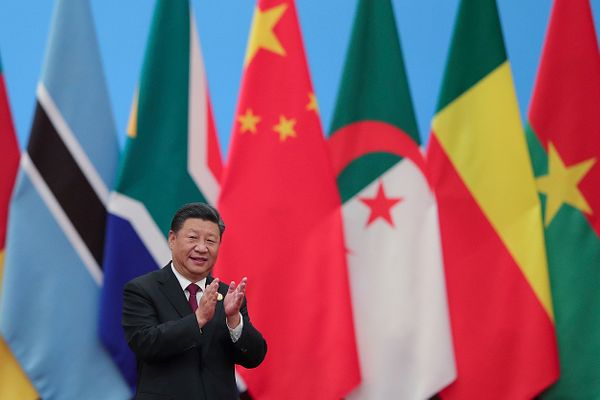Mission 2025: 85% of Chinese to mandatory use Mandarin
Nationally only 40% of Chinese individuals in China can speak mandarin, the National dialect, according to the Chinese government even though the vast majority of people in large cities can comprehend the language,
The Chinese government stated that all future teachers would be required to pass a standard Mandarin speaking exam, and online remote instruction would be employed to ensure that instructors of all Chinese ethnicities could also study the language online.
With 1.35 billion people residing in the country, which spans 9.6 million square kilometres, China is the world’s most populated country (3.7 million sq. miles).
After more than a century of pushing Mandarin as China’s official language, about a third of the population still does not speak ‘Putonghua’ or the common speech, as the government refers to it. According to Xinhua, 400 million Chinese individuals are unable to communicate in Mandarin, according to a recently concluded government research.
Over 90% of the population in China is Han Chinese, yet there are over 1,500 dialects spoken by Han Chinese, even though the majority of these languages are spoken in the country’s south. While the dialects are all claimed to be variants of Mandarin, scholars claim that some of them are so dissimilar that they have evolved as independent languages.
This has alarmed Chinese officials, who have long aspired to what they have dubbed “linguistic unity.” After centuries of warring kingdoms and instability on the mainland, modern Chinese authorities view a common language as one method to achieve a stable, strong, and undivided China. It would help overcome linguistic hurdles between China’s millions of migratory workers who migrate from the countryside to cities today.
To achieve this aim, the government had long ago established legislation in 2000 mandating Mandarin to be the official language in all major media and for governments to “popularise Putonghua.” Officials had claimed that they had started with promoting a language campaign in the rural hinterland after releasing new statistics on the country’s Mandarin speakers. To create a way for more Mandarin, a former official from China’s Ministry of Education advocated abolishing English lessons in primary schools.
China has a total of 302 living languages, according to official statistics. Many of China’s minority languages and dialects have seen a reduction in speakers in recent years, and some are now deemed endangered.
Now, China is starting an intensive effort to promote Mandarin, claiming that by 2025, 85 per cent of its population would speak it. The decision appears to put even more pressure on endangered Chinese regional dialects like Cantonese and Hookean, as well as linguistic minorities like Tibetan, Mongolian, and Uyghur.
The State Council, China’s Cabinet, issued an order on Tuesday saying that Mandarin is “unbalanced and inadequate” and needs to be adjusted to suit the demands of the current economy.
Critics have periodically protested changes to the school system and employment standards that have slowly undermined the function of minority languages, accusing the government of waging a campaign to eliminate cultures that do not correspond to the main Han ethnic group.
The policy also seeks to make Mandarin essentially universal by 2035, including in rural areas and among ethnic minorities, in addition to the 2025 goal.
Protests have erupted in response to the spread of Mandarin over other languages, as last year in Inner Mongolia when Mongolian was replaced as the medium of instruction by standard Mandarin. All such movements have been branded as a form of separatism by China’s ruling Communist Party, which has relentlessly suppressed them. It claims that language homogeneity is required for economic and national unification reasons.
The policy is backed up by legal obligations, and a recently released report called for increased supervision to “ensure that the national common spoken and written language is used as the official language of government agencies and as the basic language of schools, news and publications, radio, film and television, public services, and other fields.”
Officials are also urged to “vigorously increase the worldwide standing and influence of Chinese” in academics, international organisations, and at worldwide meetings, according to the document.
Government initiatives to boost Mandarin through its global network of Confucius Institutes have sparked controversy, with critics accusing the government of using the institutes to propagate the party’s ideology and restrict debate over issues such as its record on human rights.












